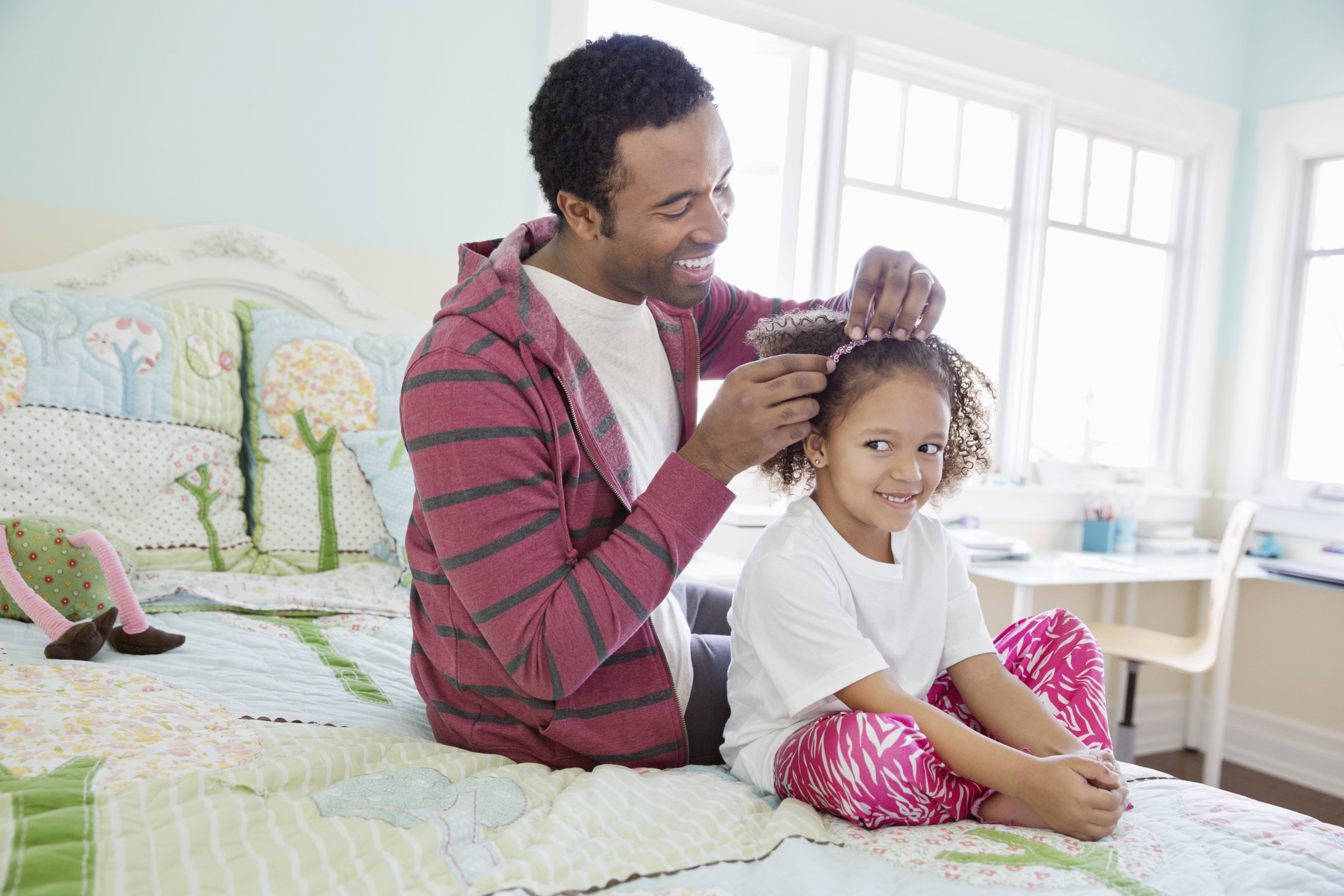
I was raised by a second-wave feminist leader and attended countless feminist rallies, marches and readings as a boy. Last I checked the movement didn’t give out cards; it dispensed ideas that have changed the world and each of us.
For me, feminism is tradition and family legacy, but also a movement I have chosen to embrace. I am a feminist and I am a better dad for it. So are we all.
Whether one calls oneself a feminist, it is undeniable that feminism and feminists have made the modern dad possible. Feminism taught me to be comfortable and proud of who I am, and encouraged self-determination. These are traits we all want to pass along to our kids. But, more significantly, feminism benefited us dads greatly by encouraging increased involvement in our children’s lives, and forever changed our roles.
If you believe that dads are capable of diapering, feeding and raising children as well as women can, you might be a feminist. If you are a stay-at-home dad and your wife (or husband) is the family breadwinner, you might be a feminist. And if you believe that dads deserve better paternity leave policies, you might be a feminist.
Yet using the term “feminist” is questioned even by those, like Dave Lesser, who, to his credit, believes that his daughter should be able to take leadership positions, earn as much as a man doing the same job and be free from sexual harassment, challenges his daughter’s gender norms and wants to ensure that she will never be limited by her gender (I wonder what movement gave him those ideas?).
While I don’t insist that anyone label themselves, and I understand it’s easier to not use a label that comes with a lot of baggage and misconception, it’s obvious to me that the only reason “feminist” remains a bad word is that women (and anything associated with them) are still discriminated against. And, the fact that stereotypes of man-hating feminists persist (not to mention the visceral anger the word inspires) proves the point. Feminist is the only appropriate word for those that believe in the radical notion that women should be equal to men, and who understand that we live in a world of historically and culturally inscribed female disadvantage.
However, being a feminist doesn’t mean either perfection or rigidity. Like Lesser, I encourage my 4-year-old daughter to wear multiple colors, play with blocks and basketballs and limit her exposure to princess culture. And, like Lesser, I am faced with a daughter who likes princesses, purple dresses and painting her nails. I have also allowed her to watch a number of Disney movies, including Cinderella (gasp!). On the other hand, I don’t let my daughter play with a toy vacuum cleaner. But, that’s because neither my wife nor I use one in real life. We avoid cleaning equally.
The crux of feminism is analysis and awareness. Even feminists have internalized the pervasive sexism in our culture and exhibit contradictions in their lives (I love rap music, much of which contains misogynist lyrics, and I’ve objectified women I’ve passed on the street).
While I recognize that my daughter also “loves all the crap that is shamelessly marketed to girls her age,” I will challenge her when she repeats ideas about gender norms or limits the roles we can each occupy during pretend play. I will never let her limit her vision of who she can become. And I will continue to analyze and dissect the rigid gender roles placed on children’s clothes, toys, and cartoons and in popular culture.
Feminism is also crucial for dads raising boys. If you care about ensuring that boys aren’t denied their full humanity and aren’t stunted in their emotional development, you might want to thank feminism for recognizing that boys and men have feelings too. If we truly care about boys, we can acknowledge, as feminists have, that placing them in a limiting “man box” hurts them deeply and releasing them from it will improve their lives.
Just as being a parent includes a learning curve and requires constant effort, and sometimes trial and error, feminism recognizes that we are works in progress and need to challenge our children and ourselves as we grow together. Mistakes will be made. Sometimes we will succumb to our culture’s sexism. But we can rise to challenge it the next day.
So while I want equality of the sexes and safety for all our daughters and try to resist gender limitations for my daughter, I sometimes buy my daughter clothes and toys that make me cringe because I know that they will make her happy. I buy her those things to respect her choices, even if I might make different ones. And, what could be more feminist than that?
Ariel Chesler is an attorney and writer in New York. He lives with his wife and two daughters, and one cat. He is the son of feminist author and psychologist Phyllis Chesler.
More Must-Reads from TIME
- Cybersecurity Experts Are Sounding the Alarm on DOGE
- Meet the 2025 Women of the Year
- The Harsh Truth About Disability Inclusion
- Why Do More Young Adults Have Cancer?
- Colman Domingo Leads With Radical Love
- How to Get Better at Doing Things Alone
- Michelle Zauner Stares Down the Darkness
Contact us at letters@time.com